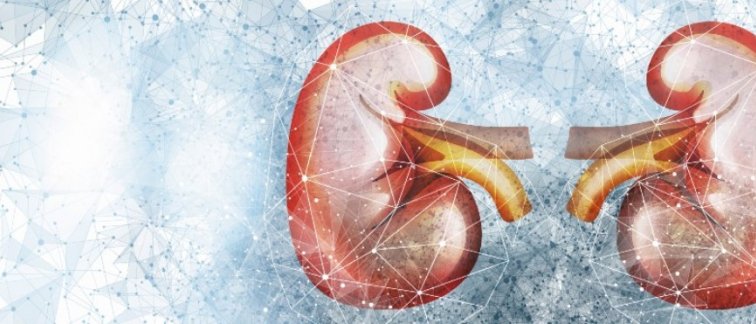Half of kidney transplant recipients do not generate antibodies following the second COVID-19 vaccination. Alongside vaccination, an alternate method exists to prevent (severe) COVID-19—namely by adhering to behavioral guidelines¹. Nevertheless, the efficacy of this approach had remained unverified within this patient cohort until now. "Observing precautionary measures, both prior to and post-vaccination, demonstrates its effect ," states Suzanne Geerlings, infectious disease physician at Amsterdam UMC. "This holds crucial implications for patients, their medical caregivers, and the future, given the potential gravity of a SARS-CoV-2 infection in this susceptible patient group."
Kidney transplant recipients take immunosuppressive medication to prevent transplant rejection. Earlier research² noted the significant role of these drugs in the weakened immune response post-vaccination. Nevertheless, the investigators showcased, through nationwide completed questionnaires, that vaccinated transplant recipients followed the recommended measures less rigorously after vaccination. Sophie Frölke, PhD candidate at Amsterdam UMC: “Kidney Transplant Recipients (KTRs) perceived increased liberal attitudes towards preventive measures post SARS-CoV-2 vaccination. This perception stemmed from an expectation of developing SARS-CoV-2 specific antibodies and thereby gaining protection against COVID-19. However, as a significant proportion of KTRs exhibit inadequate antibody response even after dual mRNA vaccine doses, this sense of freedom could be deceptive for these individuals.”
Subsequently, upon measuring and communicating antibody levels, it was observed that patients with detectable antibodies adhered less to the guidelines compared to those without antibodies. According to the investigators this is likely to be the result of the communication to participants that a higher antibody concentration is a correlate of protection. Frölke emphasized, "Validating these hypotheses holds immense significance; we've successfully unveiled distinctive insights." The findings are published in Lancet eClinicalMedicine.
Continued vaccination remains the optimal approach
"It is still vital for kidney transplant patients to attain an optimal immune response via repeated vaccination, as it links to a less severe disease course," Frederike Bemelman, internist-nephrologist and lead researcher of the RECOVAC consortium at Amsterdam UMC. "Historically, repeated vaccination has demonstrated itself as the most effective immunization approach. Consequently, the Health Council encourages at-risk populations to undergo re-vaccination against COVID-19 in the upcoming autumn (2023). Moreover, our study's findings underscore the significance of persistently following behavioral guidelines post-vaccination."
Look ahead to the future
Frölke explains: “The aim of assessing antibody levels in clinical settings is to give Kidney Transplant Recipients (KTRs) greater flexibility regarding preventive measures, recognizing the importance of social interaction for overall well-being. However, the specific antibody threshold conferring protection against COVID-19 in KTRs remains unidentified.”
Conducted by the RECOVAC consortium (Amsterdam UMC, Erasmus MC, UMC Groningen, and Radboud MC), this study is a ZonMW and Kidney Foundation-funded endeavor that investigates SARS-CoV-2 within approximately 3000 kidney transplant recipients. It delves into immunological, clinical, and social inquiries. Due to the treatment, this group frequently faces a compromised immune system, ranging from moderate to severe. The primary focus is on determining the most effective approach to protect patients against SARS-CoV-2. This involves sharing individual vaccination outcomes to improve their quality of life while avoiding increased infection risks from prematurely relaxing preventive measures.
Future research is needed to determine the most effective approach for communicating individual vaccination outcomes to patients. This aims to enhance their quality of life while avoiding the potential hazard of inadequate adherence to preventive measures and elevated infection risk. Frölke underscores the need to evaluate whether reduced adherence among those with positive antibody responses is justifiable, especially in the context of potential future pandemics.
For more information, contact Frederike Bemelman or read the scientific publication.
Researchers involved at Amsterdam UMC
Sophie Frölke, PhD candidate at Amsterdam UMC
Suzanne Geerlings, infectious disease physician at Amsterdam UMC
Frederike Bemelman, internist-nephrologist and lead researcher at Amsterdam UMC
Pythia Nieuwkerk, medical psychologist at Amsterdam UMC
Frölke, S. C., Bouwmans, P., Messchendorp, A. L., Vervoort, J. P., Abrahams, A. C., de Vries, A. P., ... & Vegting, Y. (2023). Adherence to preventive measures after SARS-CoV-2 vaccination and after awareness of antibody response in kidney transplant recipients in the Netherlands: a nationwide questionnaire study. eClinicalMedicine, 62.
Text: Esmée Vesseur
Learn more about our Amsterdam institute for Infection and Immunity COVID-19 research:
Cross-continental collaboration identifies new COVID-blocking natural product (April 2023)
Doctors advocate for large post-COVID study (March 2023)
When the total is more than the sum of its parts: a collaboration between AII and the group of Prof. Wilfingseder (November 2022)
Reference list:
¹General behavioral guidelines (that were also measured in this study program): 1) ‘Keep a distance of 1.5 meters from another’, 2) ‘Wearing a face mask if mandatory or if social distancing is not possible’, 3) ‘Washing hands’, 4) ‘Avoiding supermarket or other shops’, 5) ‘Avoiding public transport’, 6) ‘Avoiding crowded gatherings’, 7) ‘Limit visitors or visits’, 8) ‘Working from home’ and 9)‘Avoiding travel abroad’.
² Frölke, S. C., Bouwmans, P., Messchendorp, A. L., Geerlings, S. E., Hemmelder, M. H., Gansevoort, R. T., ... & Peters-Sengers, H. (2022). Predictors of nonseroconversion to SARS-CoV-2 vaccination in kidney transplant recipients. Transplantation direct, 8(11).
Sanders, J. F., Bemelman, F. J., Messchendorp, A. L., Baan, C. C., van Baarle, D., van Binnendijk, R., ... & Reinders, M. E. J. (2021). The RECOVAC Immune-response Study: The Immunogenicity.Tolerability, and Safety of COVID-19 Vaccination in Patients With Chronic Kidney Disease, on Dialysis, or Living With a Kidney Transplant. Transplantation Publish Ahead of Print. Transplantation, 2021 10.1097/TP.0000000000003983

